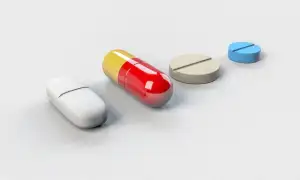Unlocking the Link Between Depression and Matted Hair: Understanding the Impact on Health

Depression can manifest in various ways, one of which is through neglecting personal hygiene, including hair care. When individuals are experiencing depression, they may find it challenging to muster the energy or motivation to maintain their hair, leading to matted and tangled locks. This physical manifestation of mental health struggles can further impact self-esteem and overall well-being. Understanding the link between depression and matted hair is crucial in addressing both the mental health issues and the physical symptoms that arise from it.
Understanding the Link Between Depression and Hair Neglect
Depression can lead to a lack of motivation and energy, making it challenging to maintain basic self-care routines like hair grooming. This neglect can result in matted hair, as individuals may struggle to brush or wash their hair regularly. The emotional toll of depression can also contribute to feelings of worthlessness or indifference towards personal appearance, further exacerbating the issue. It's essential to recognize that hair neglect is often a visible manifestation of an individual's internal struggles with mental health.
Impact of Depression on Hair Health
Depression can have a significant impact on hair health. The stress and emotional turmoil associated with depression can lead to changes in the body's hormone levels, which may result in hair loss or thinning. Additionally, individuals experiencing depression may neglect their personal hygiene routines, including hair care, leading to matted and tangled hair. This lack of proper grooming can further exacerbate hair issues and contribute to poor scalp health. It is essential to address both the mental health aspects of depression and the physical manifestations on hair health to promote overall well-being.
Signs and Symptoms of Depression Matted Hair
One of the key signs of depression matted hair is the neglect of basic hair care routines. Individuals experiencing depression may struggle with daily tasks, including grooming. This can lead to a lack of washing, brushing, or styling hair, resulting in tangles and mats forming over time. Additionally, stress-induced hair loss or thinning can exacerbate the issue, making it harder to manage tangled hair. The presence of matted hair can also be a physical representation of one's mental state, serving as a visible indicator of underlying emotional distress. It is essential to address both the mental health concerns and the physical symptoms to promote overall well-being.
Tips for Managing Depression Matted Hair
1. Gentle Detangling: Use a wide-tooth comb or your fingers to gently detangle matted hair to avoid breakage and further damage.
2. Deep Conditioning: Regular deep conditioning treatments can help nourish and moisturize the hair, making it more manageable and reducing tangles.
3. Regular Washing: Keep your hair clean by washing it regularly with a mild shampoo to prevent oil buildup, which can contribute to matting.
4. Protective Styles: Consider wearing protective hairstyles like braids or buns to minimize tangling and reduce the risk of matted hair.
5. Trim Split Ends: Regular trims can help prevent split ends, which can lead to tangles and matting in the hair.
6. Seek Support: Reach out to friends, family, or a mental health professional for support in managing both your mental health and hair care routine.
By incorporating these tips into your daily routine, you can effectively manage depression matted hair while promoting overall well-being.
Seeking Professional Help for Mental Health and Hair Care
Seeking professional help is crucial for addressing both mental health issues and hair care concerns related to depression matted hair. Mental health professionals, such as therapists or psychologists, can provide therapy and support for managing depression. Additionally, consulting with a dermatologist or trichologist can help address any underlying scalp conditions that may be contributing to hair matting. It's important to seek help from qualified experts who can offer tailored solutions for both your mental well-being and hair health.
In conclusion, it is crucial to recognize the connection between depression and matted hair as neglecting one's hair can be a visible sign of underlying mental health issues. Taking care of your hair is not just about appearance but also about overall well-being. Remember, self-care is essential in managing both your mental health and hair health. Engage in activities that bring you joy, practice mindfulness, seek support from loved ones or professionals, and prioritize self-care routines. By taking small steps towards self-care every day, you can improve your mental health and maintain healthy hair. Remember, you are not alone in this journey – reach out for help when needed and prioritize your well-being.
Published: 19. 03. 2024
Category: Health



